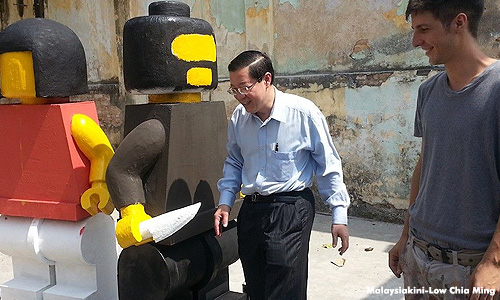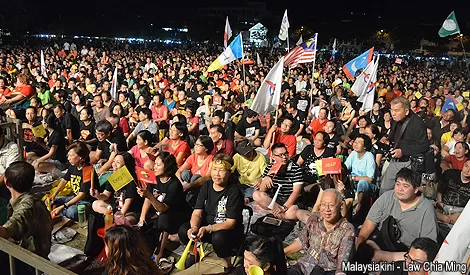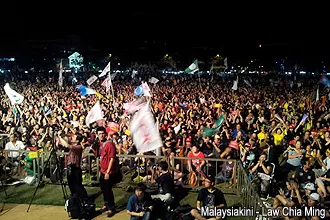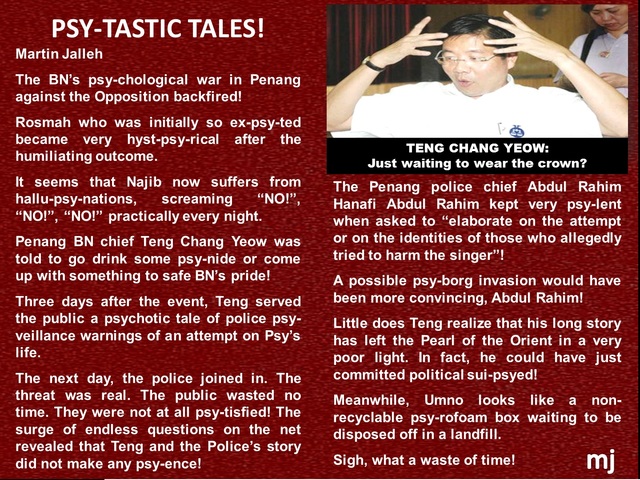Hafiz Noor Shams
The Malaysian Insider
Feb 28, 2013
FEB 28 — For better or worse, quantity is important in a democratic contest. It is about gaining the majority. It is about popularity.
With that as the context, we have to remember we live in a young society. The Department of Statistics estimates that the median Malaysia age in 2010 was slightly above 26 years. In simpler terms, the age of one half of the population today is younger than the median just three years ago. The profile of the Malaysian electorate pretty much reflects the demographics of our society.
Thanks to their sheer size, those in their 20s and 30s are clearly the biggest and thus the most important group. Collectively they can decisively determine the path which the country would take.
But what makes these young people stand out further politically is that most of them will be voting in a national election for the first time in their lives. Their minds more flexible than those belonging to the older generation who more often than not are hung up on legacy issues. Ibrahim Ali, for instance, still has the May 13 incident as his talking point.
So, young adults are the cool kids on the block and the two nationally-relevant political factions are competing to be the friend of these cool kids. The Barisan Nasional-led federal government has launched several policies for that purpose and chief among them are affordable housing and other cash transfers. The federal opposition Pakatan Rakyat promises the same young adults free tertiary education, among others. Both sides are pulling out all stops to be the one special friend.
While I find many of those policies too populist, at least those policies are serious in the sense that they affect a person’s welfare. The existence of a real policy competition between two credible sides is heartening since previously, it was really all about the old, stale, suffocating issues of race and religion. That is not to say that race and religion are no longer factors but at the very least, we have something substantive to base our election on.
But I do have a feeling that the courting is starting to go a bit too far and starting to appear regressive. It is starting to go into the realm of the trivial that debases the very serious nature of our elections. In an effort to become ever more popular, political parties are starting to make entertainment the focal point of their political events, instead of what the parties stand for. Continue reading “From race and religion to Psy”

 “That is what makes art meaningful,” he said at a press conference to support Lithunian artist Ernest Zachaveric’s solo show ‘Art is Rubbish/Rubbish is Art’ tomorrow.
“That is what makes art meaningful,” he said at a press conference to support Lithunian artist Ernest Zachaveric’s solo show ‘Art is Rubbish/Rubbish is Art’ tomorrow.


 群众于较早的晚上9点左右在大会司仪带领下,高喊“国阵肮脏”与“选委会是骗子”口号。
群众于较早的晚上9点左右在大会司仪带领下,高喊“国阵肮脏”与“选委会是骗子”口号。
 The carnival-like event, which included a stage and canopy, dozens of hawker stalls and DAP’s own merchandise sales corner, kicked off at 5pm while about 500 people watched a mini-concert by local bands such as Zombie Station, TUC, and Sweet Scream.
The carnival-like event, which included a stage and canopy, dozens of hawker stalls and DAP’s own merchandise sales corner, kicked off at 5pm while about 500 people watched a mini-concert by local bands such as Zombie Station, TUC, and Sweet Scream.